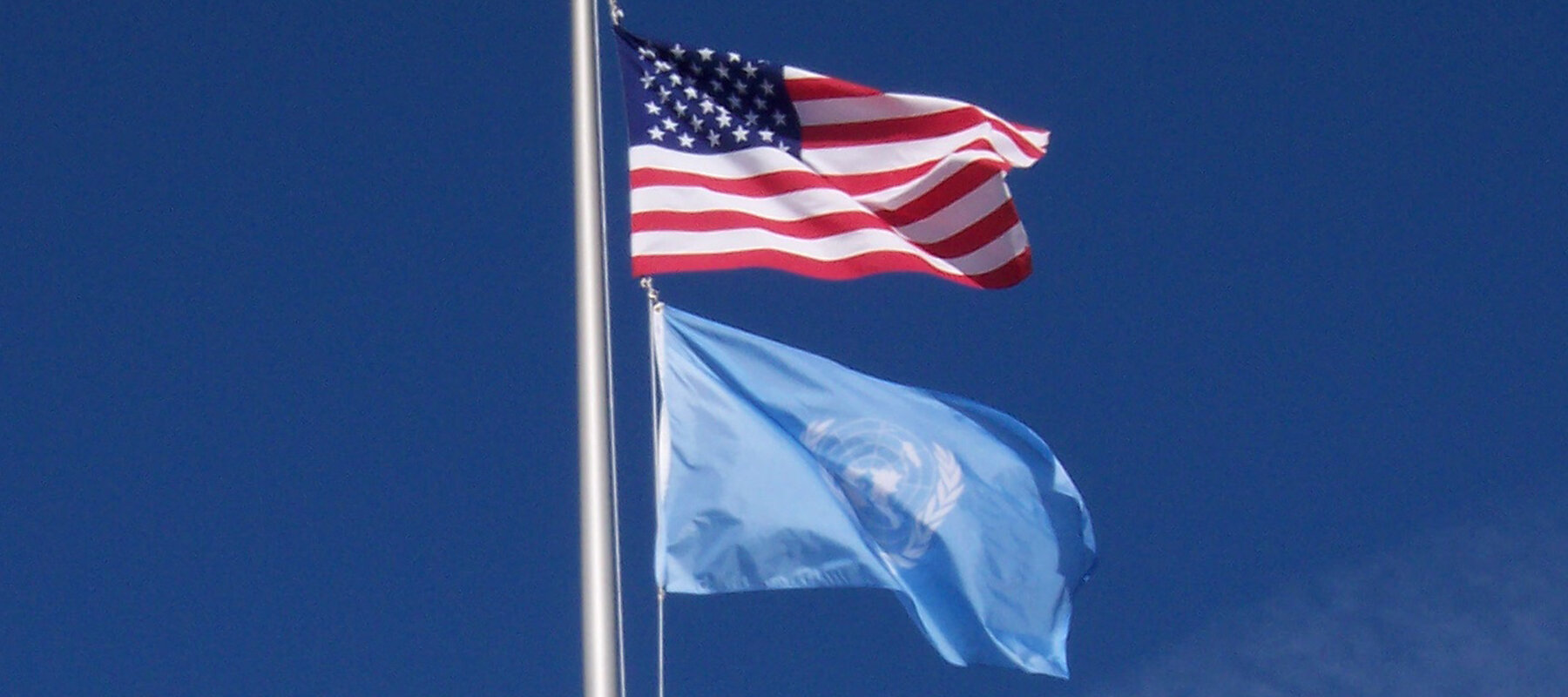Dr. Norrin Ripsman, an international relations professor, listed six reasons as to why America’s diplomacy is particularly urgent.
These include: deteriorating relations with China; Russian troop buildup on the Ukrainian border; growing tensions between Israel and Iran; a potential crisis on the U.S. southern border as large numbers of refugees seek asylum; rebuilding trust with U.S. allies after four years of the Trump administration and, of course, a global pandemic.
At a virtual seminar and Q&A hosted by the Lehigh University-United Nations Partnership, Martindale Center and International Relations department last week, a legal adviser to the U.S. Mission to the United Nations, Dr. Mark Simonoff, tackled these and other challenges facing the US on a global scale.
Simonoff described his work as that of a “civil servant,” revolving around lots of paperwork submissions, advice, guidance and acting as “a voice of the United States in the UN,” working largely with the UN Security Council and General Assembly.
As an example of his work, he noted “if the Russians are being obstructionist and trying to raise procedural hurdles for us to get a resolution adopted into the General Assembly or Security Council, I will pull out my Rules of Procedure which I always have handy (and identify a counter challenge),” Simonoff said. “Often it ends up being a question of having the votes.”
He also explained the general makeup and positions within the UN in addition to covering specific UN topics of discussion that, to him, have changed dramatically from the Trump to Biden administrations.
Rejoining the Paris Agreement and dealing with Iranian ‘snapback’ sanctions were two of many spotlighted political events in Simonoff’s career with the UN, in addition to working through what may be a prominent part of history: the COVID-19 pandemic
The restrictions caused by the pandemic upended the UN, putting them in what Simonoff described as “crisis mode.” He discussed how parts of the UN transitioned to a virtual format or how others initially didn’t meet at all.
“I've been in the General Assembly several times over the past many months,” Simonoff shared. “Everyone has to wear face masks, they can't do the usual shaking hands and hugging each other and everyone has to stay six feet apart.”
Though the pandemic has drastically shifted the way in which the UN works, Simonoff ended with some tips on how to persist and continue following a similar path to his — involving impactful global work.
He said that opportunities obviously differ from the U.S. to South America to Belgium, but that there are a plethora of ways to get more involved: demonstrate interest through classes, sign up for internships, find work for bureaucratic agencies, go into foreign and civil service and generally “try to keep a broad lens.”
Hasan Jashari ’24 offered a question based on an overseas perspective from his home in Belgium.
“I have experienced U.S. foreign policy differently over the past few years, and the Trump administration has impacted the U.S. position on the international stage,” Jashari said. “With Biden, it's a big part of his agenda to meet again on a global level.”
Jashari was interested in knowing what the United States has to do to regain a leadership position in global governance, to which Simonoff explained that isolationism isn't the answer, but rather, humble reengagement with partners to achieve mutual goals is the answer.
Students and staff who attended seemed to gain essential global-centric knowledge from the session in addition to hope for improved U.S. relations at the UN.
“As America's leading higher education institution at the United Nations, Lehigh University really welcomes the re-emergence and reengagement of the United States at the United Nations,” Sophia Holt ’21 summed up. “We wholeheartedly support the significant and essential policy shifts that have already occurred and look forward to the development of a holistic and proactive UN strategy from the U.S.”
